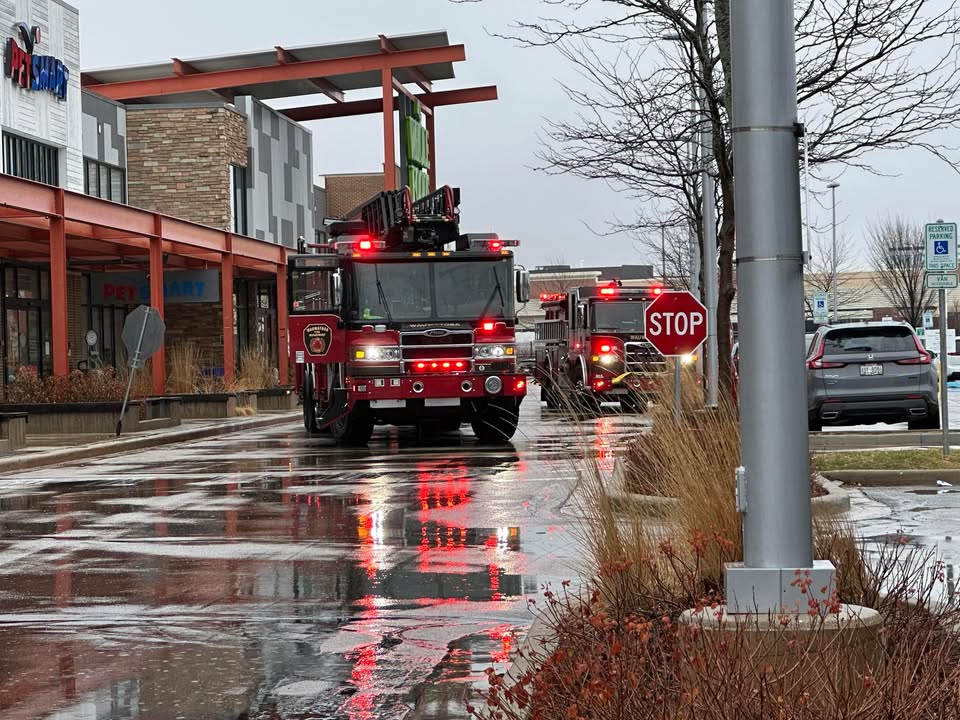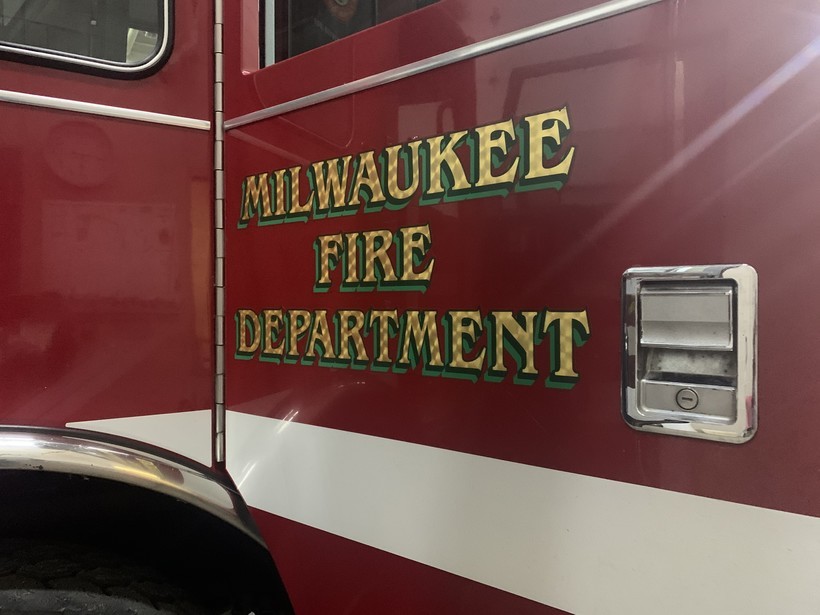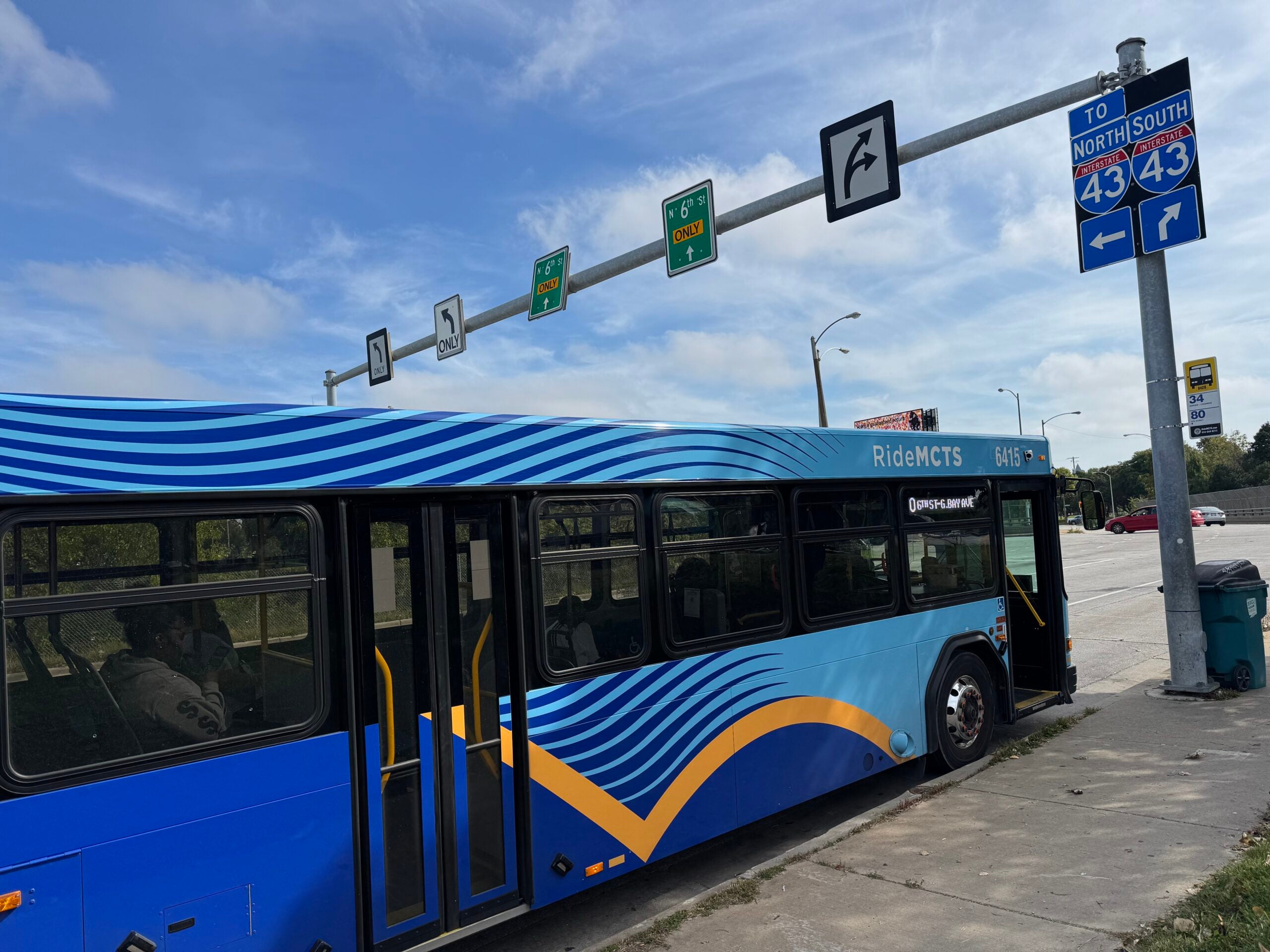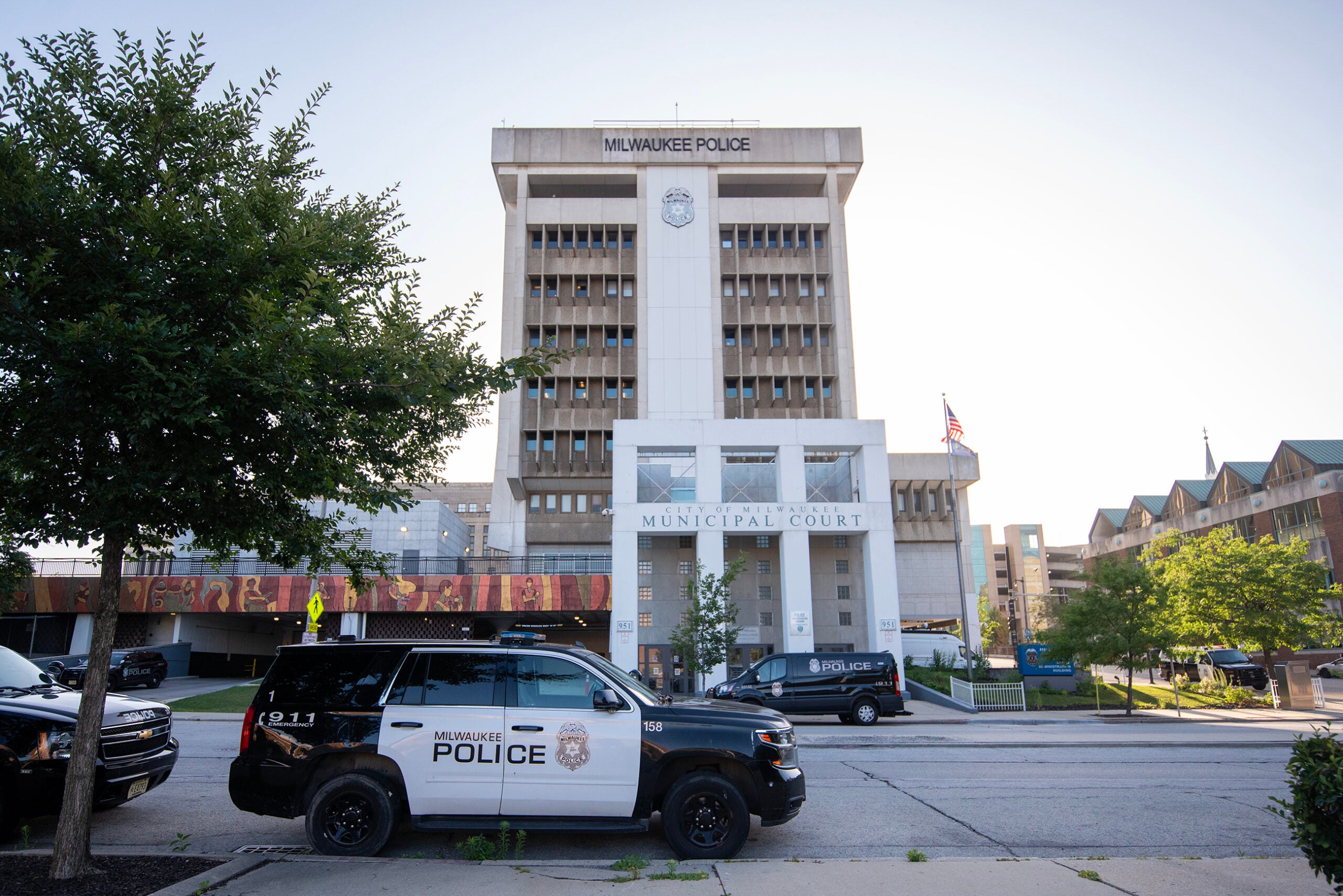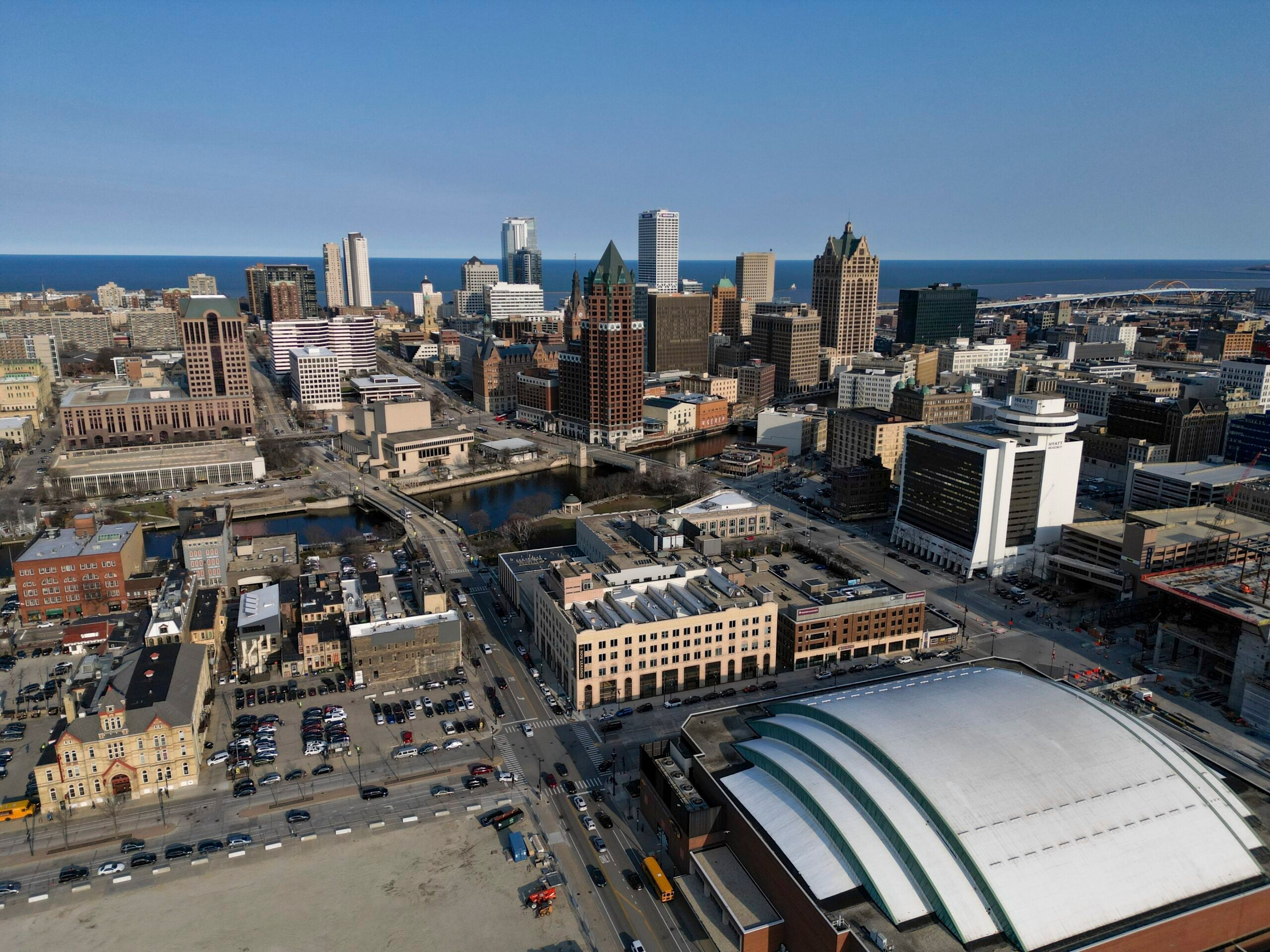Nearly a year ago to the day, Milwaukee Mayor Cavalier Johnson’s budget address to the common council painted a bleak picture for the future of the city’s finances.
Johnson said then that the state’s “broken” shared revenue system was forcing the city to make difficult cuts to police, fire and library services.
This year, his budget address struck a different tone.
News with a little more humanity
WPR’s “Wisconsin Today” newsletter keeps you connected to the state you love without feeling overwhelmed. No paywall. No agenda. No corporate filter.
“One year has made a world of difference,” Johnson said. “As we stay on a responsible course, we can look ahead to stability in our finances, greater confidence among city employees, and for our residents, growing assurance that the city services they need and expect will be there.”
That’s largely due to the bipartisan law to overhaul local government funding, which allowed the city to pass a 2 percent sales tax hike. Combining that with a 10 percent increase in shared revenue from the state, the city’s 2024 budget now includes $205.7 million in new revenue.
Although that law has provisions on how the state’s largest city can use that money – including hiring more police officers and firefighters — Johnson said he believes Milwaukee will meet those goals. Without the infusion of cash, the city would have been forced to soon close several fire stations and libraries and eliminate hundreds of firefighters, police officers and library employees.
“I’m not closing branch libraries. I’m not imposing furlough days or hiring freezes on our employees. I’m not closing firehouses. I’m not cutting police sworn strength,” Johnson said Tuesday. “I’m not offering a budget that continues a spiral of declining services and growing desperation.”
Milwaukee Alder Marina Dimitrijevic, the chairperson of the city’s finance and personnel committee, said she’s excited the city is on a path to “financial solvency.”
“For the city of Milwaukee, this is our first budget in a long time that has the infusion of new revenue resources,” Dimitrijevic said. “It’s an exciting time for the city of Milwaukee, it’s a new day.”
But even with the influx of cash, Rob Henken, president of the Wisconsin Policy Forum, said the city will likely face budget gaps in 2025 when American Rescue Plan Act funds expire.
“While the 2024 budget is the first in recent memory that does not contain any noticeable service cuts or position cuts … that’s going to change again in 2025,” Henken said. “There is likely to be a sizable structural hole again in 2025.”
Henken believes the budget gap in 2025 could be anywhere from $20 million to $50 million. The city could address that by using pension reserve funds as well as other reserve funds, he said.
Dimitrijevic said the proposed budget is in the beginning stages, as several public hearings and committee meetings are ahead. The council could vote on the budget sometime in November.
City needs to hire 95 police officers by 2033
The shared revenue law requires the city to maintain a minimum level of police and fire staffing, takes away power from the city’s police and fire commissions and requires a return of armed police to Milwaukee Public Schools. The city also can’t use the funds to expand its streetcar.
Under the shared revenue law, the city must have at least 1,725 police officers within ten years. The Milwaukee Fire Department must also staff 218 firefighters. That means the Milwaukee Police Department must increase its force by 95 police officers, while the Milwaukee Fire Department has to hire 26 new firefighters by 2033.
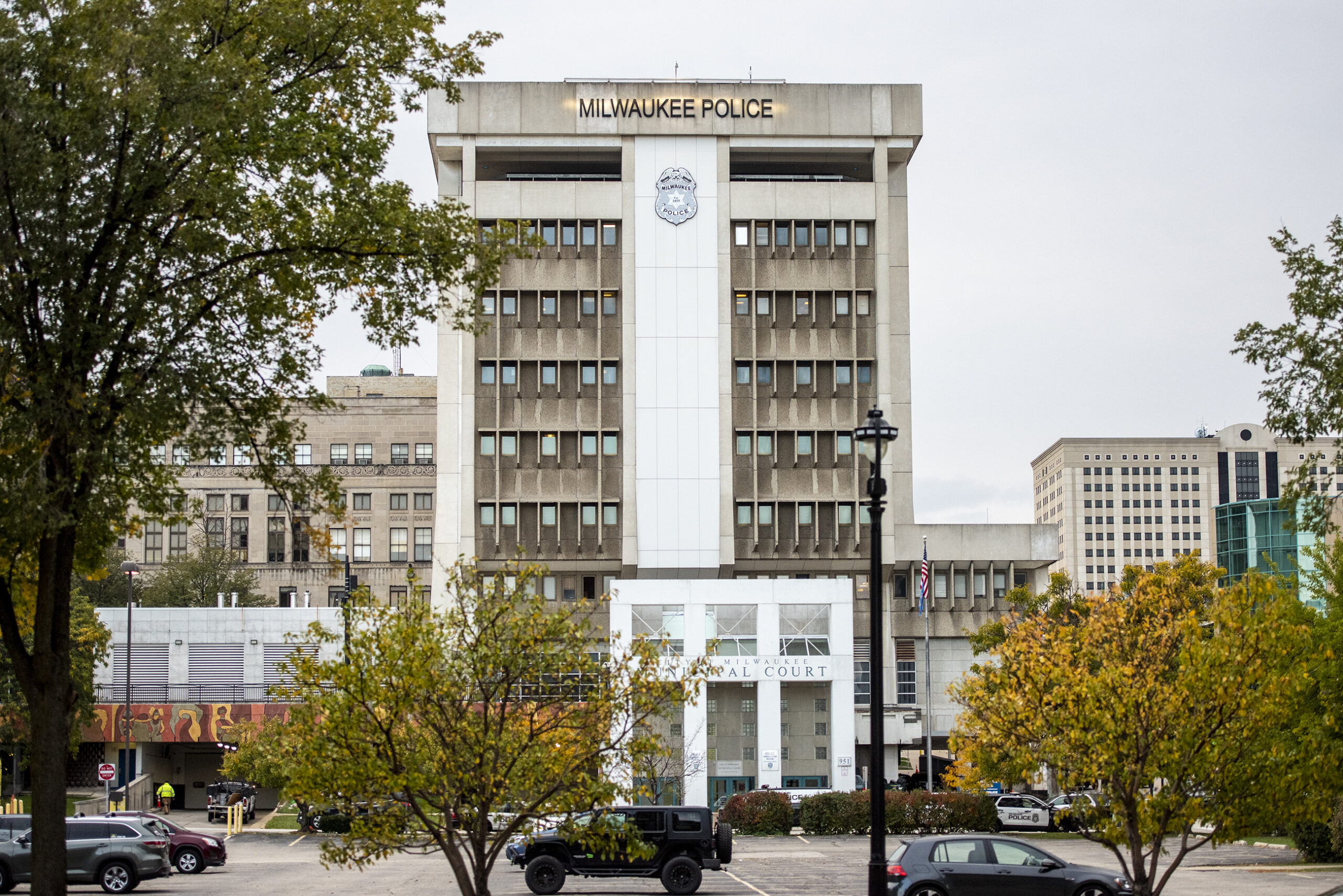
A draft of the $1.9 billion budget proposal, released Tuesday, calls for the city to reach that goal before that time. Factoring in expected retirements, the city plans to increase its police force by 15 officers and hire six additional firefighters next year.
Johnson also said he believes the city will reach that state mandate.
“It is my desire to not wait until 10 years is up to get those positions filled as quickly as possible,” Johnson said.
Brewers deal still a concern for local leaders
Monday, Wisconsin Republican lawmakers announced a $700 million plan to use state and local dollars to fund renovations at American Family Field and ensure the Milwaukee Brewers stay in the city until 2050. That proposal calls for the city of Milwaukee to contribute around $2.5 million annually to help pay for the improvements.
Dimitrijevic said the common council does want to ensure the Brewers stay in Milwaukee. The deal will likely be discussed and debated by state lawmakers in the coming weeks, but Dimitrijevic said she’s “concerned” about those negotiations.
“This will create a hole in our budget that we were not expecting,” Dimitrijevic said about the local dollars.
A joint statement released Tuesday from seven Milwaukee alders also said the local contribution was too high.
“We are hoping that as the process moves forward the Republicans and Democrats will truly play ball to limit the financial impact as much as possible,” said the joint letter from José G. Pérez, Dimitrijevic, JoCasta Zamarripa, Michael J. Murphy, Lamont Westmoreland, Mark A. Borkowski and Scott Spiker.
That deal will likely be voted on sometime in October and will need Gov. Tony Evers’ signature. In a statement, a spokesperson for Evers said his administration wants to reach a deal that “minimizes harm for local partners.”
Wisconsin Public Radio, © Copyright 2025, Board of Regents of the University of Wisconsin System and Wisconsin Educational Communications Board.



